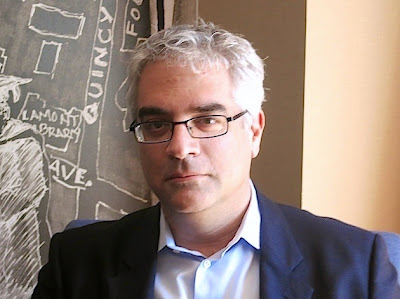In the 21st century, the social sciences
offer a promise for improving human welfare. The advances that we have made and
will be making, especially in understanding human behavior and its very deep
origins, will be translated into interventions of diverse sorts that will have
a much bigger impact in terms of improving human welfare , said Nicholas
Christakis in a recent conversation in EDGE (see video). Christakis is a Physician and Social Scientist at
Harvard University and Coauthor (with James Fowler) of “Connected: The Surprising Power of Our Social Networks and HowThey Shape Our Lives”. The book suggests that your colleague's husband's sister
can make you fat, even if you don't know her. A happy neighbor has more impact
on your happiness than a happy spouse. These startling revelations of how much
we truly influence one another are revealed in the studies of Drs. Christakis. CONNECTED
overturns the notion of the individual and provides a revolutionary
paradigm-that social networks influence our ideas, emotions, health,
relationships, behavior, politics, and much more. A health care policy
specialist Christakis (Death Foretold: Prophecy and Prognosis in Medical Care)
became interested in social connectivity when observing that the mortality rate
of spouses spike after a partner passes away. Christakis sought out a
collaboration with Fowler, a health systems and political scientist, and
together they compare topology (the hows of a given structure) across different
social networks to better explain how participation and positioning enhances
the effectiveness of an individual, and why the "whole" of a network
is "greater than the sum of its parts." Five basic rules describe the
relationship between individuals and their networks-including mutual
adaptation, the influence of friends and friends' friends, the network's
"life of its own"-but the results do more than promote the good of
the group: they also spread contagions; create "epidemics" of
obesity, smoking and substance abuse; disseminate fads and markets; alter
voting patterns; and more.

No comments:
Post a Comment